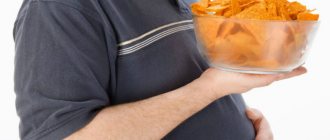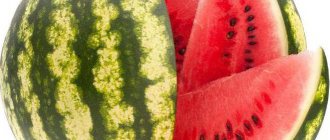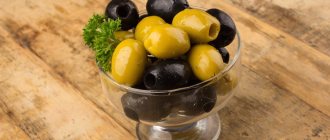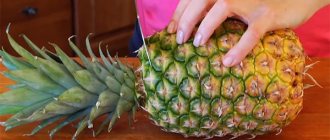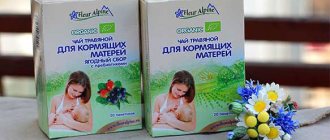After the birth of a baby, every nursing mother asks the question: what foods are good for the baby, and what from her usual diet can harm him. For example, mom loves salted lard. Accordingly, a logical question arises: can a nursing mother eat salted lard, what effect will the use of this product have on the child’s body.
Animal fat cannot be called an exclusively healthy product, since it contains a huge amount of saturated fatty acids. Such fats of animal origin negatively affect the body of a healthy person, and therefore the issue of consuming salted lard for a nursing mother should be considered carefully.
Beneficial features
Lard is a nourishing product that quickly saturates the body and fills it with vitamins A, D and E. Vitamin A or retinol has a positive effect on the condition of the skin and stimulates hair growth and maintains visual acuity. Vitamin E or tocopherol normalizes hormonal levels, controls cholesterol levels in the blood and strengthens blood vessels. This is very important for nursing mothers, because a woman’s body is greatly weakened after childbirth.
In addition, lard removes toxins and harmful substances and dissolves carcinogens. Research shows that it prevents the development of cancer. Arachidic acid in the product is of great benefit. It ensures normal hormonal activity and regulates cholesterol metabolism.
Vitamin D is very important for infants; a lack of this element leads to weakening of bones and the development of rickets. Unfortunately, many newborns face the problem of vitamin D deficiency. The highest concentration of this useful element is found in sunlight, fish and fish oil, oatmeal and potatoes, butter and sunflower oil, as well as lard. For more information about the benefits of vitamin D for infants, read the link /.
Lard contains 100 grams of fat, 39.2 grams of saturated fatty acids and 95 mg of cholesterol per 100 grams of product. By the way, lard contains much less cholesterol than butter. There are 902 kcal per 100 grams of product. When breastfeeding, it is important to follow the rules of food consumption so as not to harm the body of mother and baby.
The benefits and harms of lard
Proponents of proper nutrition put forward many arguments against lard. They consider it almost poison to the body. The main argument is the high calorie content.
But even so, lard has many positive aspects:
- it contains vitamins A, E, D, which are also necessary for pregnant and lactating women;
- The Omega-6 fatty acids it contains help get rid of extra pounds on the sides and prevent the deposition of fat on the walls of blood vessels, and also help in cholesterol metabolism;
- contains selenium, which helps the body fight the flu;
- contains arachidonic acid, which promotes good functioning of the brain, cardiovascular system, kidneys and other organs;
- contains lecithin, which helps tissues remain elastic.
Therefore, if you eat lard in moderation (and this is no more than 100 g per day), then it only brings benefits.
How to properly use and choose lard during breastfeeding
- Pediatricians do not recommend trying lard in the first 5-6 months after the baby is born;
- For the first time, try a small piece and observe the baby’s reaction. Food allergies manifest themselves within two days in the form of poisoning and stool disturbances, redness and swelling of the skin, the appearance of rashes and itching. If your child has a negative reaction, immediately remove the product from the menu. Read here what to do if you have a food allergy in your baby;
- If there is no negative reaction, lard can sometimes be consumed while breastfeeding;
- A nursing mother can only eat salted lard, which contains no other spices other than lard. When breastfeeding, smoked lard, foods with garlic and a lot of spices are prohibited;
- The product must be fresh and preferably homemade, not purchased;
- When breastfeeding, it is better to eat lard rather than wild boar. It tastes and smells more pleasant. But do not get carried away with pork and pork products, as this is a fatty food that is difficult to digest and absorb.
Harm of lard during breastfeeding
Pediatricians often face questions about whether a nursing mother can eat a fatty product and whether smoked lard will harm the baby during breastfeeding. Doctors strongly recommend following a strict diet in the first months after the baby is born and avoiding smoked, spicy and salted pork fat with spices and garlic. The list of foods that are undesirable to eat during breastfeeding also includes all types of smoked meats and fatty meats.
The fat layer of meat products contains a large amount of cholesterol, excessive consumption of which can cause serious heart and vascular diseases. Nursing mothers should be careful when consuming pork. The lack of enzymes for the absorption of fat in the baby’s body can provoke allergic reactions, intestinal colic, as well as sleep and digestive disorders in a small child.
How to choose the right lard
- Before purchasing, be sure to check the documents for lard. The product must bear the stamp of the veterinary service;
- You cannot take a yellow or gray product, as it is an old product. Fresh and high-quality lard should be pale pink in color with a delicate sweetish-milky aroma;
- Before purchasing, you can lightly pick out a piece near the skin. If the meat picks out well, it's pork;
- The thickness of the piece should be 2-3.5 centimeters;
- A quality product will prick slightly. It is wet, but not slippery;
- Choose the cut from the belly of the pig, as it is the best and tastiest;
- The skin should be soft and smooth without bristles.
The benefits of lard
Experts consider the product relatively useful. Due to the large amount of fat in it, lard is difficult for the body to digest. However, thanks to its beneficial composition, its components have benefits for the newborn’s body:
- Vitamin D. It is especially important for infants because it strengthens the skeletal system and prevents the development of rickets. The product contains the same amount of vitamin D as butter. True, the latter also contains cholesterol.
- Vitamin A. Responsible for the normal condition of mucous membranes, prevents eye diseases and moisturizes the skin.
- Vitamin E. Strengthens blood vessels, stabilizes cholesterol levels and has a positive effect on the condition of the skin. Vitamin E is important for women; it maintains hormonal levels in the right state.
- Arachidonic acid. It is necessary for the functioning of the heart and has a positive effect on mental activity.
Women ask if lard is ok for a nursing mother. In addition to the above properties, the product promotes:
- Strengthening the immune system.
- Removing decay products and toxic substances from the body.
- Increased hemoglobin levels in the blood.
- Development of bone tissue in an infant.
- Stimulating the process of blood renewal in the body.
Lard is a fairly filling product. A few pieces can satisfy a woman's appetite.
It is recommended that a nursing mother consume smoked lard after the baby is 6-8 months old. It is best to purchase a fresh product, and only then pickle it yourself.
How to salt lard at home
Salting can be carried out using a quick dry method, in which the product will be ready in two to three weeks, but it can be stored for up to one month. The wet method involves salting in brine. It is more labor-intensive, but provides storage of lard for a year. Hot salting or cooking removes harmful substances from the product due to heat treatment. This reduces the risk of poisoning and infection with dangerous infections that animal meat often contains.
Boiling is the safest method of pickling while breastfeeding. First, the lard is cut into layers 3-4 centimeters thick. The pieces are dipped into boiling water with onion skins. The husk will give the product a pleasant golden hue, but will not affect the taste or composition of the product. Add salt to taste to the water and cook for about 15 minutes. Please note that when cooking, the water should completely cover the pieces. Rub the lard with salt and pepper and put it in the refrigerator until completely cooled. This product is stored for about 6 months.
A faster salting recipe involves cutting the lard into pieces, rubbing it with salt and pepper, putting it in a bag and leaving it at room temperature for 12 hours. Afterwards, you need to put the dish in the freezer for two days. This lard can only be eaten for the first three to four weeks after preparation. Often the pieces are rubbed with grated garlic, but it is not recommended to eat garlic while breastfeeding.
Subscribe to our VKontakte group
Rules for eating lard while breastfeeding
Since lard is a conditionally healthy product, its use during breastfeeding should be very thoughtful and careful:
- You can try the delicacy for the first time no earlier than the baby is six months old.
- To start, a small piece (about 2x2 cm) eaten in the morning is enough.
- After consuming lard, it is necessary to monitor the baby for at least a day to make sure that the product does not negatively affect his health.
- If the child behaves calmly and does not develop a rash, diarrhea, constipation, or colic, then we can say with confidence that the lard did not harm him. Next time you can increase the portion a little.
- Nursing mothers can eat no more than 30g of Ukrainian delicacy per day. A large dose may already pose a risk for the woman and the baby.
- It must be remembered that this delicacy is quite high in calories (more than 900 Kcal per 100 g), so overweight mothers are advised to refuse such food.
- You should not eat such food every day, as it is quite heavy food for the body. During breastfeeding, a woman’s body already bears a noticeable load; there is no need to force it to work even more.
- It is best to eat lard with a small piece of bread. It is in this form that it is most beneficial for the body.
Lard is a delicacy, and such food should be treated as such. In order to get pleasure and benefit from the product, a small piece is enough. Do not use it uncontrollably: it will only harm you!
Recommendations from experts
Many pediatricians do not advise nursing mothers to consume lard in the first 6 months after giving birth. During this period, the baby's main nutrition is breast milk. It is with it that beneficial and harmful substances penetrate the body.
The saturated fatty acids contained in lard will be difficult for the child’s body to digest. As a result, the following negative symptoms may occur:
- colic;
- constipation or diarrhea;
- vomit;
- increased gas formation;
- allergic reactions.
Many women ask whether a nursing mother can smoked lard? In this case, it is necessary to wait a little while introducing the product into the diet, because it will bring minimal benefit to the body. Also, lard can negatively affect the gastrointestinal tract of a baby.


